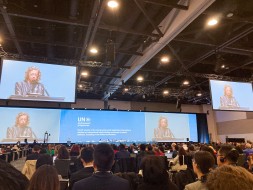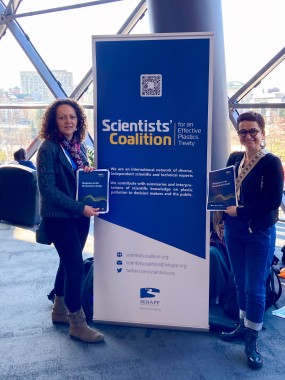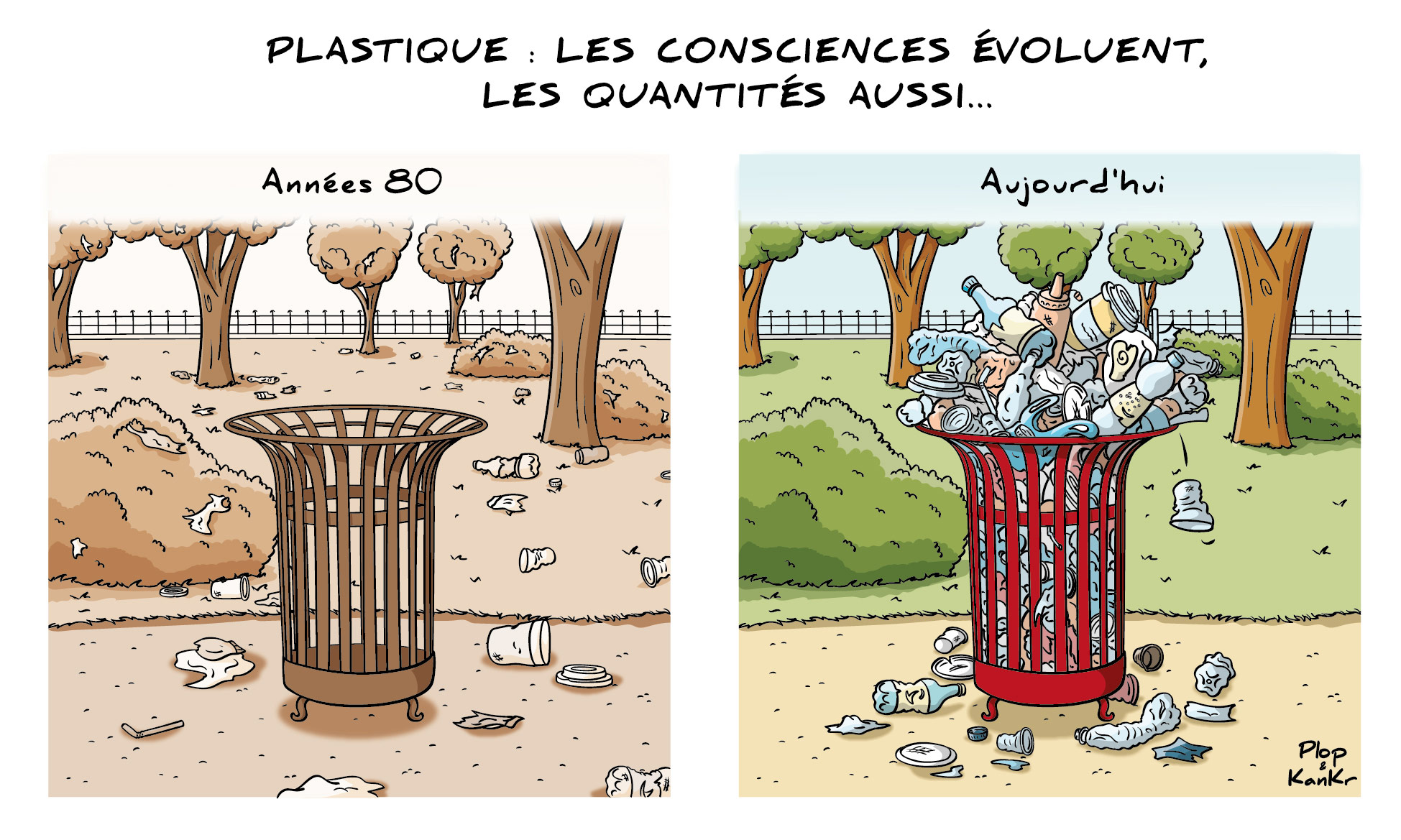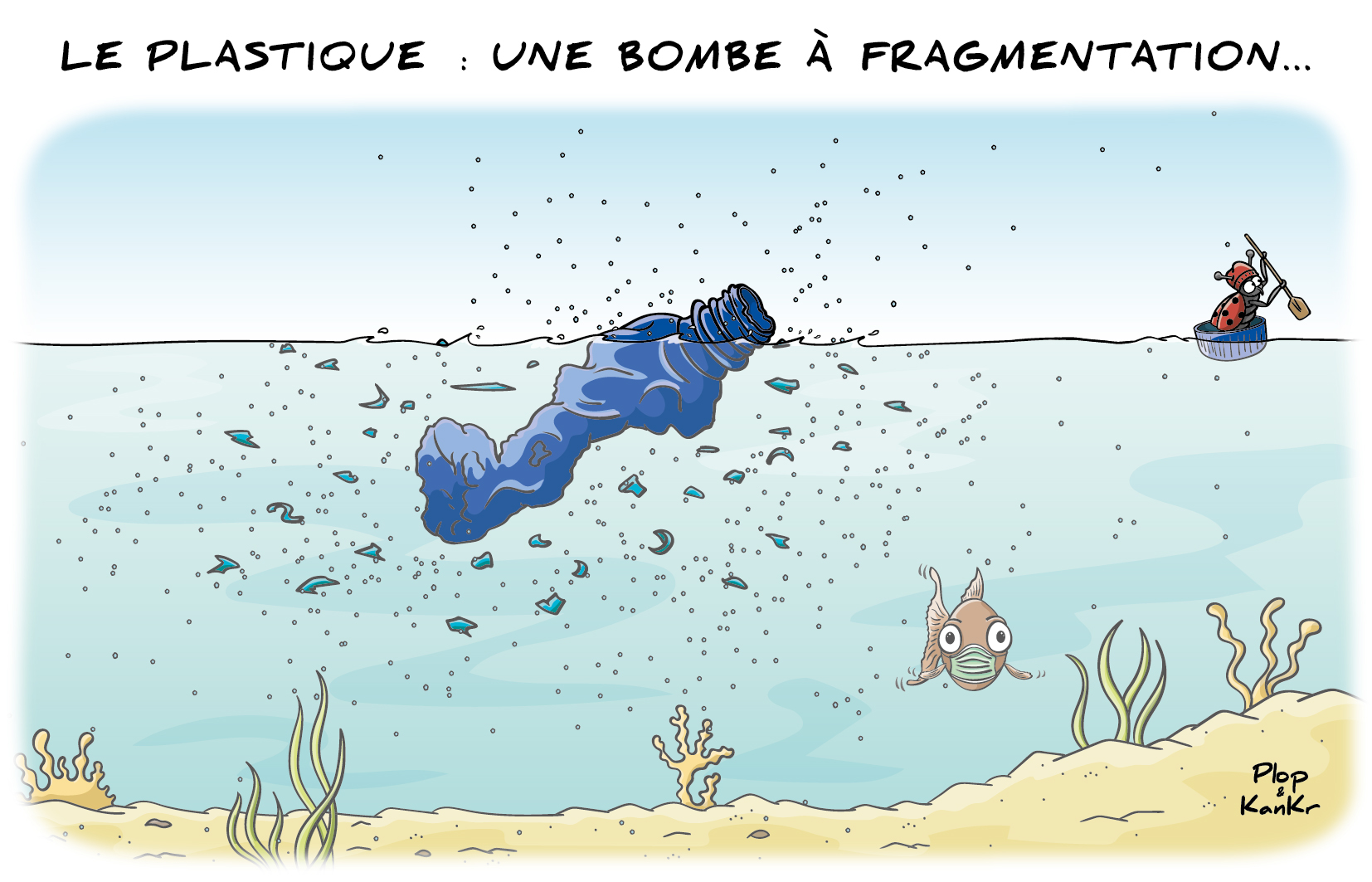International treaty against plastic pollution: a UPPA scientist invited to the 4th session of intergovernmental negotiationsApril 23-27, 2024 | Ottawa (Canada)
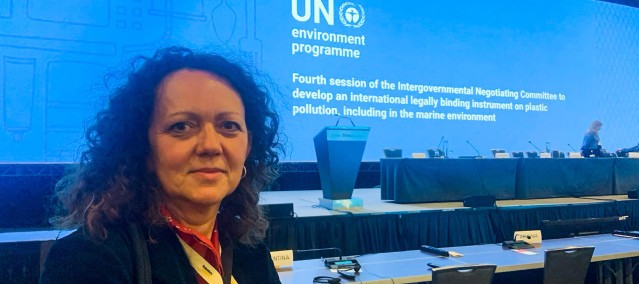
In March 2022, the UN, or more accurately the Fifth United Nations Environment Assembly, passed a landmark resolution to negotiate an international treaty to combat plastic pollution by the end of 2024. This treaty, which is intended to be legally binding, would adopt a global approach covering the entire life cycle of plastics. Since then, 193 countries have been involved in drafting a common text, via representatives who meet every six months in an “intergovernmental negotiating committee”. After Uruguay, France and Kenya, Canada hosted the 4th session of the Intergovernmental Negotiating Committee (CIN-4) in Ottawa from April 23 to 27, 2024. The session brought together representatives from over 170 governments, including the European Union.
In parallel, and in order to feed debates with recent, solid and independent scientific knowledge, more than 350 independent scientists from 60 different countries have joined forces within the Scientists' Coalition for an Effective Plastics Treaty. They participate in thematic working groups to prepare briefing notes for decision-makers before and during negotiation sessions.
60 coalition members were present in Ottawa, including 8 French scientists. Among them was Stéphanie Reynaud, CNRS Research Director at the Institute of Analytical Sciences and Physical Chemistry for the Environment and Materials (IPREM) at the University of Pau and Pays de l'Adour.
Stephanie, what exactly was your role on site?
The Coalition is there to provide the scientific facts, as fairly as possible, without taking sides. Our role is to ensure that everyone has the same level of information so that we can negotiate an effective treaty.
Just before the start of the negotiations, the Coalition of Scientists organized a major presentation evening attended by over 200 guests (politicians, non-governmental organizations, delegations).
During the negotiations, which lasted 7 days almost non-stop, we were able to discuss with delegations, intergovernmental agencies and NGOs between sessions, and reiterate scientific findings where statements could be misleading.
We were also present just before the sessions to present the Coalition of Scientists and our fact sheets in several languages. We then attended the plenary sessions, which are also accessible online, as well as the confidential negotiation sessions to which scientists have reserved access.
The text of the treaty is worked on by the negotiators from the national delegations or their representatives. Once the negotiators have spoken, and if time permits, the floor is opened to observers (scientists, NGOs, etc.). In Ottawa, the Coalition of Scientists was given the floor, as were a number of NGOs, including representatives of indigenous peoples.
Were there scientists from every country?
No, not all delegations included scientists. France was among the national delegations that invited the largest number. Few ministers were present, but the French Minister for Ecological Transition and Territorial Cohesion, Christophe Béchu, made an opening speech, emphasizing the importance of science in the treaty process.
What does the Coalition do outside the negotiating sessions?
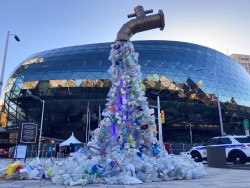
We are working on the draft text of the treaty, highlighting the key points that we feel are important to clarify. There are some 16,000 possible chemical additives in plastics. Transparency is essential for access to formulations. We also argue in favor of the notion of essentiality. It's a question of rationalizing the use of plastics, not banning everything: are they necessary or replaceable in their uses? Are they in the short or medium term? Which are still essential?
We don't want to turn back the clock, but return to a more rational approach. It seems that the challenge is to truly reduce the production of plastic at source, thereby resolving several problems at once, such as impacts on human health, biodiversity and the environment. At the same time, waste management and recycling need to be improved, and will provide additional leverage.
In the end, what emerged from this negotiating session?
Despite some differences of opinion, all the states are united in discussing a treaty to tackle the problem of plastic pollution. Some countries want to reduce plastic production by 40% by 2040, while others are opposed. However, the different parts of the text are being addressed, and the states have agreed to hold inter-sessional discussions for the first time, which for me is a step forward.
What impressed you the most?
As a scientist, I had no idea what I was going to be confronted with and how international negotiations were conducted. Despite the divergent positions that still exist on the text of the treaty under construction, I found it very impressive, and I want to believe encouraging, to see all these States represented in the same room to draw up a text discussing plastic pollution.
In parallel with the negotiations, events proposed by NGOs, universities, industrialists, etc. (conferences, discussions, exhibitions) took place. I wasn't expecting to hear from the indigenous peoples, whom I found extremely poignant, as they put human beings at the heart of the debate. Young people were also present and, as is often the case, I found them involved, accurate in their opinions and very well informed. I was impressed by a 14-year-old girl who took the floor at the end of the negotiations, with assurance and humility, to remind us of what the younger generation expected for a more serene future.
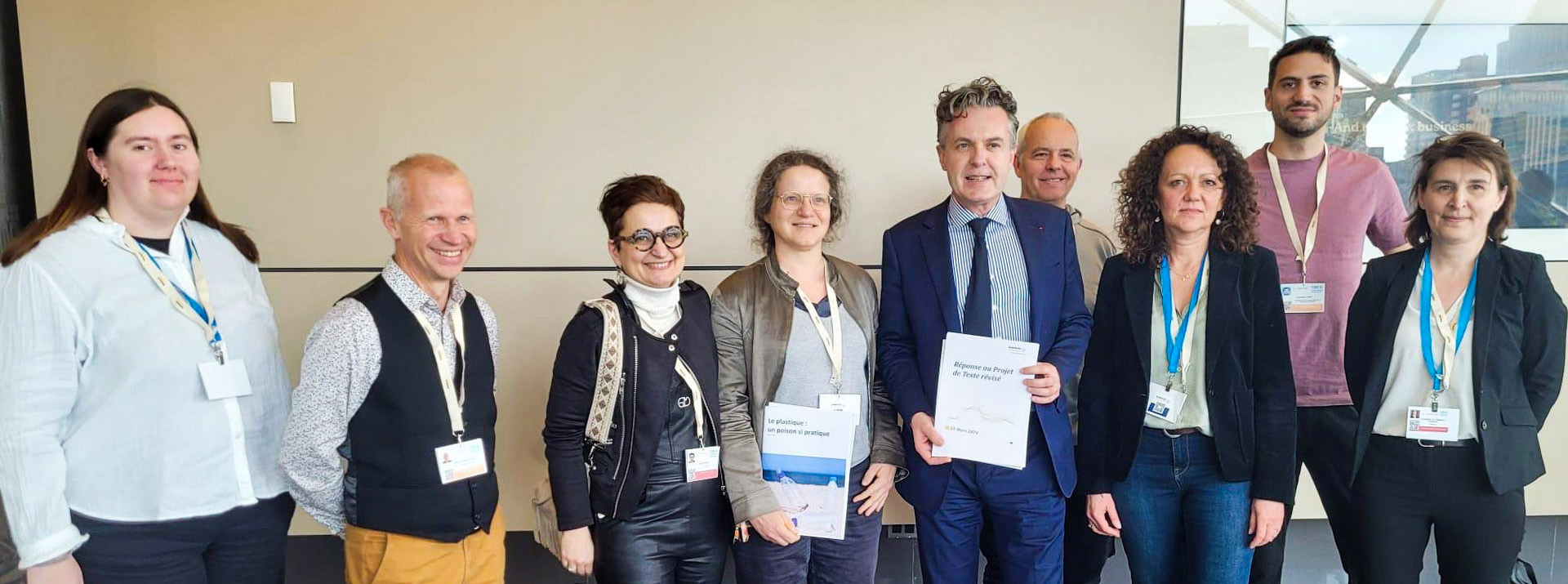
Scientists from French research units accredited to CIN-4 and members of the Coalition of Scientists for an Effective Plastics Treaty:
- Juan Baztan, CEARC researcher (Université Versailles Saint-Quentin-en-Yvelines composante Paris-Saclay)
- Gabin Colombini, IRD associate researcher, iEES Paris (Sorbonne University)
- Xavier Cousin, INRAE research fellow, MARBEC (University of Montpellier).
- Marie-France Dignac, INRAE Research Director, iEES Paris (Sorbonne University)
- Jean-François Ghiglione, CNRS Research Director, LOMIC (Sorbonne University)
- Fabienne Lagarde, teacher-researcher, IMMM (CNRS / Le Mans Université)
- Muriel Mercier-Bonin, INRAE Research Director, Toxalim (Toulouse III - Paul Sabatier University)
- Stéphanie Reynaud, CNRS Research Director, IPREM (Université de Pau et des Pays de l'Adour)
Focus on the Treaty against plastic pollution
The current text is divided into 5 chapters and annexes.
Chapter 1 is an introduction (preamble, treaty framework, principles and definitions).
Chapter 2 covers all technical aspects (primary plastic polymers, polymers and substances of concern, design of plastics and plastic products, reuse, recycling, alternatives, extended producer responsibility, plastics in the environment and just transition).
Chapter 3 deals with future financial and capacity-building aspects.
Chapter 4 deals with implementation aspects of the future treaty (national plans, reporting, evaluation, international cooperation, education and research, etc.).
Chapter 5 deals with issues of governance and the setting up of ad hoc structures (a science-policy interface body specific to the Plastics Treaty in particular).
The 5th and final Intergovernmental Negotiating Committee will be held in Busan, Republic of Korea, at the end of November 2024. It should mark the end of the process of drawing up a final text. This INC-5 will be followed by a diplomatic conference in 2025, at which the heads of state will sign the agreement.
